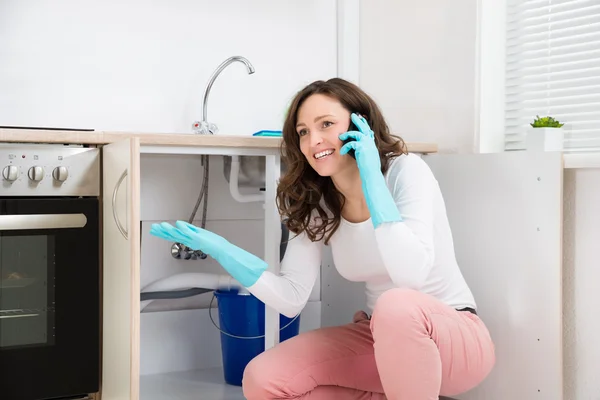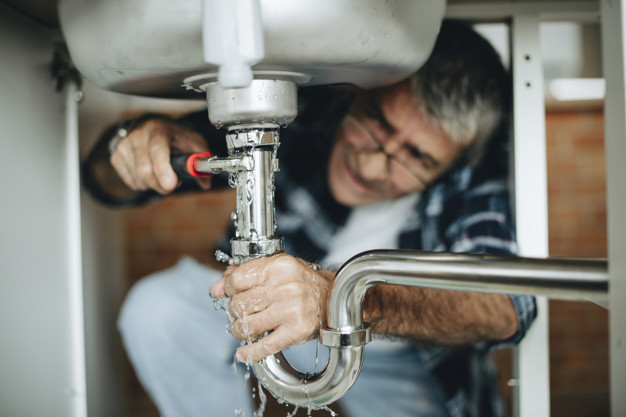Leading 5 Factors for Water Leaks
Leading 5 Factors for Water Leaks
Blog Article
We have encountered the article pertaining to Where to Find Water Leaks below on the net and accepted it made perfect sense to relate it with you on my blog.

"Beware of little expenditures. A small leakage will certainly sink an excellent ship." - Benjamin Franklin.
He couldn't have been extra best since water leaks in our houses cause a waste of resources, boosting our water expenses. This boost might seem minimal at first, it can lead to considerable expenses that can damage your financial institution. Aside from an increase in expenses, water leaks also cause unwanted organic growth, structural damages, and also electrical dangers.
Figuring out if you have a water leak isn't always easy because of being incapable to see most of the pipework in your house. If you have had a boost in your water expenses lately, noticed water discolorations on ceilings and also wall surfaces, smelt lousy odor, etc. You may wish to consider asking for plumbing solutions to get it had a look at.
There are numerous reasons for water leakages, and we have actually assembled the common factors below. Inspect to see if you have actually had related issues in your house recently.
Blocked drains
Food bits, dust, and also oil can cause clogged drains as well as block the flow of water in and out of your sink. If undealt with, raised pressure within the seamless gutters can finish and cause an overflow up fracturing or breaking pipelines. To avoid clogged drains pipes in your house, we encourage you to stay clear of putting bits down the drain and also regular cleaning of sinks.
High water pressure
You discovered your home water stress is greater than normal but then, why should you care? It runs out your control.
It would certainly be best if you cared because your ordinary water pressure should be 60 Psi (per square inch) and also although your residence's plumbing system is developed to withstand 80 Psi. A boost in water pressure can put a strain on your house pipelines and result in splits, or worse, ruptured pipes. Get in touch with an expert regarding controling it if you ever observe that your residence water stress is greater than normal.
Rust
As your pipework ages, it obtains weaker and also extra vulnerable to rust after the regular flow of water through them, which can gnaw at pipes and also create splits. A visible indicator of deterioration in your home plumbing system is discoloration as well as although this could be hard to detect due to a lot of pipelines hidden away. Once they are old to make certain an audio plumbing system, we suggest doing a constant appointment every couple of years and transform pipes
Compromised pipeline joints
Pipeline joints are the parts of our plumbing system where the pipelines connect. It is important to note that even though pipes are created to stand up to pressure and last for a while, they weren't designed to last for life; consequently, they would wear away over time. A typical indicator of damaged pipe joints is excessive noise from faucets.
Damaged seals
An additional source of water leaks in homes is broken seals of home devices that use water, e.g., a dishwasher. When such appliances are mounted, seals are set up around water connectors for very easy passage of water through the maker. Hence, a broken seal can cause leakage of water when being used.
With little or no expertise of plumbing, understanding your residence's plumbing system enough to take care of a few of these problems (without consequence) can be a headache. Get in touch with plumbing professionals in Pittsburgh, Providence, Rochester, and environ today, and they'll make those issues go away.
He could not have actually been much more ideal because water leakages in our houses result in a waste of sources, enhancing our water expenses. If you have had a rise in your water costs recently, discovered water discolorations on ceilings and wall surfaces, smelt poor smell, etc. A rise in water pressure can place a pressure on your house pipelines and lead to splits, or even worse, ruptured pipes. An additional cause of water leaks in homes is damaged seals of house appliances that use water, e.g., a dish washer. When such devices are set up, seals are set up around water ports for easy passage of water with the maker.
5 TIPS IN DETECTING A WATER LEAK IN YOUR HOUSE
Water leaks can be hard to find in your home, yet they can be so common. We rely on water every day in our home, which is why a leak can cause big problems. By detecting them early, you can save money and further damage, getting the problem fixed as soon as possible. Here are 5 tips to help you detect a water leak in your home, so you can contact a plumber straight away and get the issue sorted.
Check your water meter
Many people underestimate the value of the water meter in their home. It can be one of the best ways to tell if you have a leak early on, so you can get on top of it before issues start arising. Start by turning off all the water in your home: taps, washing machine, dishwasher, etc. Now take a look at the meter – if it’s still changing with everything turned off, it’s likely you have a fast-flowing leak that you need to get on top of straight away. If nothing changes, then leave your meter for an hour or two and come back to it. Did it change in this time? It’s likely you have a slower leak, which isn’t as urgent but still handy to get fixed so it doesn’t become a bigger problem.
Keep an eye on your bill
Another good way to detect a leak in your home is by keeping an eye on your water bill. It helps if you have a past bill from the same period of time. You can compare like for like and determine whether your water usage has increased significantly. If it has, there may be a leak in your system that you haven’t picked up before. A professional plumber can check through all of your pipes and determine where it is coming from.
Look for damage
If you have a leak inside your home, you will notice damage over time. Take a look at your showers and bathtubs and note whether any of the tiles surrounding the area seem to be discoloured or damaged in any way. There may be water stains, mould or peeling material that has resulted from a build up of moisture over time. Make sure you take a look under sinks at the back of cupboards that don’t get accessed regularly. This is where damage can go unnoticed and build up over periods of time.

I am very drawn to How to Find and Prevent Water Leaks in Your Home and I really hope you appreciated the entire blog entry. Feel free to take the time to promote this blog if you enjoyed it. We recognize the value of reading our article about Where to Find Water Leaks.
Drips? Dial fast! Report this page